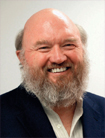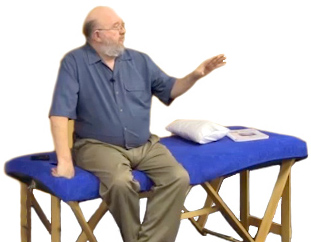
The word metaphysics points to mystery and is itself a word of mysterious origin. In The Metaphysics of Treating, our discussion of metaphysics is primarily ontological in nature, that is, focused on "the nature of being." The intent in this course is to put forward a working understanding of the metaphysical principles that underpin the IBA’s evolution and its teachings, specifically on understanding metaphysical principles in practical terms as they relate to BodyTalk. This course is a key one because the IBA’s entire body of work is rooted in metaphysical principles.
The mystery surrounding metaphysics is experienced every day in our work as BodyTalk practitioners. There is mystery around knowing how BodyTalk works and why it works better for some and not for others. The understandings put forth in this course can help to relieve some of the stress and burden we place on ourselves as practitioners. As our assumptions and insecurities as practitioners come into greater clarity through our discussion of Being, we are naturally less under their influence, and we can treat our clients from a healthier place.
This course is intended to help students more solidly grasp the notion that everything that happens is simply Being, Life, Consciousness unfolding just as it should, regardless of whether things appear to go well or poorly. It is an essential course for all students of BodyTalk and the Life Sciences.

John Veltheim is the founder of The BodyTalk System. He is cofounder of both the International BodyTalk Association and the International BodyTalk Foundation, which helps fund research and offers BodyTalk Access to people in places where healthcare is not readily available.
He is formally trained as a chiropractor and acupuncturist and served as Principal of the Brisbane College of Acupuncture and Natural Therapies for five years. Dr. Veltheim's extensive postgraduate studies include applied kinesiology and Bioenergetic therapy. He has also studied osteopathy and sports medicine.
His other areas of expertise include counseling, comparative philosophy, and theology. John also has extensive knowledge in the field of quantum physics and consciousness and has spent much time lecturing internationally on these topics.

Dr. Veltheim has written numerous magazine and journal articles on BodyTalk and his other areas of expertise. His work has been published in the Journal of Alternative Medicine Research. The journal’s publishers were so impressed with his development of The BodyTalk System, they dedicated an entire volume solely to articles about BodyTalk.
John is also the published author of several books on the topics of Reiki, acupuncture and BodyTalk. He has created numerous BodyTalk courses and developed the PaRama BodyTalk program where science meets healing at the highest level.
"It is the mark of an educated mind to be able to entertain a thought without accepting it."
“If things do not turn out as we wish, we should wish for them as they turn out.”
“[I]t is rather the case that we desire something because we believe it to be good than that we believe a thing to be good because we desire it. It is the thought that starts things off.”
–Aristotle, Metaphysics
This course addresses some core philosophical concepts that we must be aware of and understand as BodyTalk practitioners. In the more advanced levels of BodyTalk, we often have conversations about space, time, control, observation, and so forth. Some of our understandings around these principles are what allow us to facilitate distance treatments as well as things like creating delayed formulas for performance. But the philosophical conversation needs to go deeper than that. As our understanding of philosophical concepts expands, so do our questions about what we are truly doing in BodyTalk.
In this course, we will explore those aspects of metaphysics that deal with the nature of being. We will examine things like personal control, assumptions and beliefs, doing versus Being, space, time, healing systems, and the concepts of right versus wrong. This course will examine how an understanding of these principles can, and will, affect our experience as human beings and as practitioners.
Upon completion of this course, the student will be able to:
- Explain how the "False Self" is the major cause of stress, disease and mental anguish in society.
- Better understand the time/space paradox.
- Explain the difference between positive and negative assumptions.
- Start to recognize how assumptions shape and limit our experience of life.
- Understand how assumptions, insecurities and other "elephants in the room" are what hinder results in practice.
- Describe the concept of control in relation to the idea that we are "not the doer."
- Explain some of the misunderstandings around the concept of "enlightenment."
- Describe how thoughts are a process of what we can call Being.
- More deeply examine and explore the notions of right and wrong, and good versus bad.
- Describe strategies for building a successful practice.


 Online anytime at your own pace
Online anytime at your own pace
